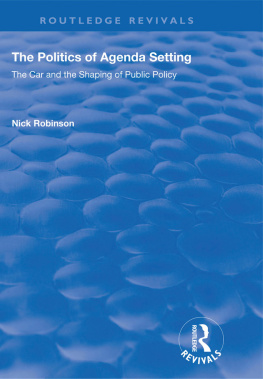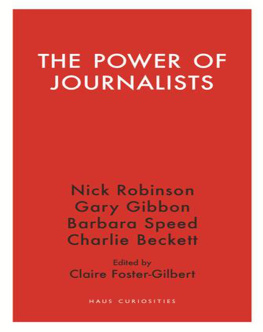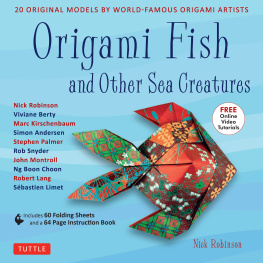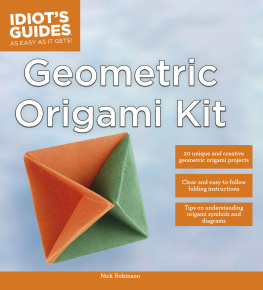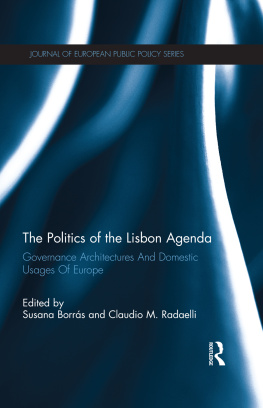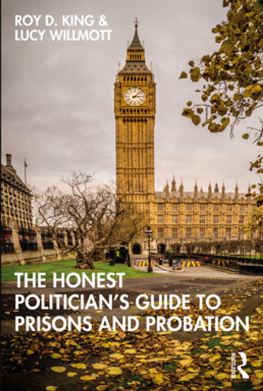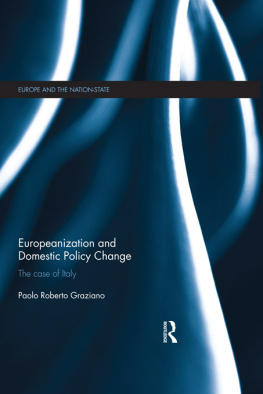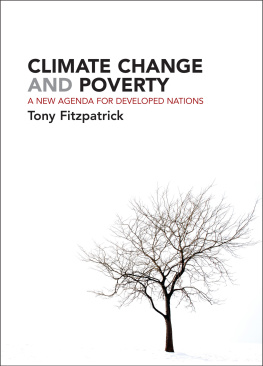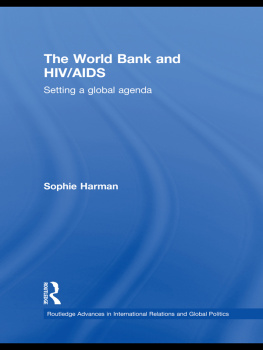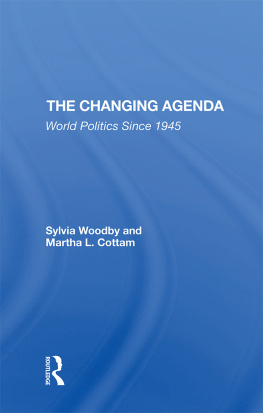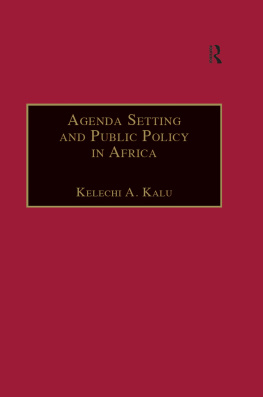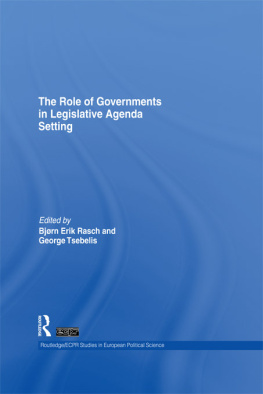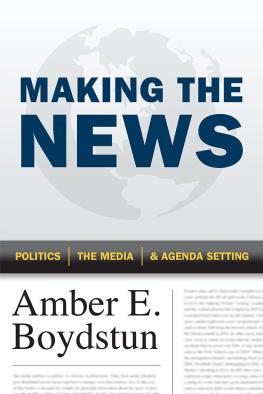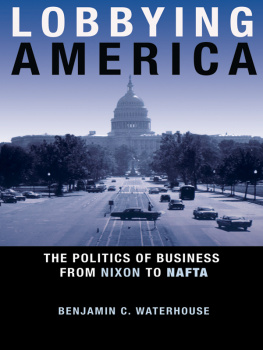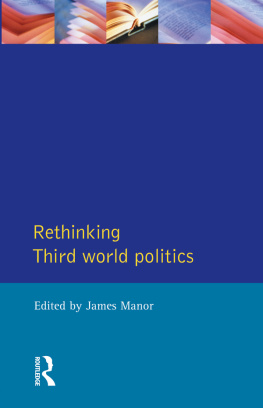The Politics of Agenda Setting
For Jo, Justin and Ella
The Politics of Agenda Setting
The car and the shaping of public policy
Nick Robinson
University of Leeds, UK
First published 2000 by Ashgate Publishing
Reissued 2019 by Routledge
2 Park Square, Milton Park, Abingdon, Oxon, OX14 4RN
52 Vanderbilt Avenue, New York, NY 10017
Routledge is an imprint of the Taylor & Francis Group, an informa business
Copyright Nick Robinson 2000
All rights reserved. No part of this book may be reprinted or reproduced or utilised in any form or by any electronic, mechanical, or other means, now known or hereafter invented, including photocopying and recording, or in any information storage or retrieval system, without permission in writing from the publishers.
Notice:
Product or corporate names may be trademarks or registered trademarks, and are used only for identification and explanation without intent to infringe.
Publisher's Note
The publisher has gone to great lengths to ensure the quality of this reprint but points out that some imperfections in the original copies may be apparent.
Disclaimer
The publisher has made every effort to trace copyright holders and welcomes correspondence from those they have been unable to contact.
A Library of Congress record exists under LC control number:
ISBN 13: 978-1-138-73804-1 (hbk)
ISBN 13: 978-1-315-18505-7 (ebk)
I would like particularly to thank Jim Bulpitt, Wyn Grant and Jeremy Richardson, from whom I have learned so much. I would also like to thank the following who commented on the various drafts which finally made up this book: Peter Burnham, Roger Duclaud-Williams, Ed Page, Matthew Paterson and Wayne Parsons. In addition, the University of Warwick provided generous financial support for the initial stages of this project. Thanks also to my former colleagues at the University of Derby for their support.
I owe a substantial debt to the numerous individuals who agreed to be interviewed and gave generously of their time and expertise, a number of whom cannot be acknowledged within the text due to the sensitivity of the information which they provided.
I would also like to thank Roger McGough and his agency, the Peters Fraser & Dunlop Group Limited, for permission to reproduce 'Five-car family', from Roger McGough (1992), Defying Gravity (Harmondsworth: Penguin) on pages 77-78 of this book.
Last but not least, I must acknowledge the support of my family. My partner Jo Townsend has been a veritable rock, undertaking meticulous proof-reading and being simply wonderful throughout, while my two year-old son Justin has given me a sense of perspective and provided endless fun.
- AA Automobile Association
- BBC British Broadcasting Corporation
- BRF British Road Federation
- CBI Confederation of British Industry
- CCT Compulsory Competitive Tendering
- CfIT Commission for Integrated Transport
- CIT Chartered Institute of Transport
- CPRE Council for the Protection of Rural England
- CTP Common Transport Policy
- DG Directorate General of the European Commission
- DoE Department of the Environment
- DoETR Department of the Environment, Transport and the Regions
- DoH Department of Health
- DTI Department of Trade and Industry
- DTp Department of Transport
- EC European Community
- ECJ European Court of Justice
- ECMT European Conference of Ministers of Transport
- ecu European Currency Unit
- EEC European Economic Community
- EMU Economic and Monetary Union
- EPEFE European Programme on Emissions, Fuels and Engine Technologies
- ERDF European Regional Development Fund
- EU European Union
- FoE Friends of the Earth
- HCSC House of Commons Select Committee
- HCTSC House of Commons Transport Select Committee
- HLSC House of Lords Select Committee
- LRT Light Rapid Transit
- NAQS National Air Quality Strategy
- NRTF National Road Traffic Forecasts
- OECD Organisation for Economic Co-operation and Development
- PFI Private Finance Initiative
- RAC Royal Automobile Club
- RCEP Royal Commission on Environmental Pollution
- RFP Roads for Prosperity
- RHA Road Haulage Association
- RSPB Royal Society for the Protection of Birds
- SACTRA Standing Advisory Committee on Trunk Roads Assessment
- SEA Single European Act
- SEM Single European Market
- T2000 Transport 2000
- TEN Trans-European Network
- TEU Treaty on European Union
- TPP Transport Policies and Programmes
- TSG Transport Support Grant
- UNICE Union of Industrial and Employers Confederations of Europe
- WMPTA West Midlands Passenger Transport Authority
- WTO World Trade Organisation
This book argues that in the 1990s transport emerged as an issue of high political salience as the motor car increasingly came to be blamed for a combination of economic and environmental problems including rising congestion, noise, land-use impacts and a deterioration of air quality and traffic safety standards. As a result, the politics of the car has become a crucial issue confronting every government world-wide: arguably, it is tangential to all government decision making. Access to the car has had an important effect on issues such as hospital and education provision; planning decisions shaping the character of city centres throughout the world, and the development of out-of-town shopping (with equity implications for those without access to a car). Furthermore, the car is a key aspect of family spending with many citizens now almost totally dependent on the car. Such issues raise significant paradoxes for government: how can they gain the benefits of the car - the jobs, convenience, economic benefits etc - while ameliorating the costs - the environmental and planning effects and the costs in human life resulting from traffic accidents. Yet transport is an issue which has invited little comment from political scientists, remaining in the main the preserve of economists, geographers and town and country planners (Grant, 1995, pp. 4-5).
The primary rationale for this book is, therefore, to add to the contribution of political science to the study of the politics of transport. This is a particularly worthwhile exercise as the studies of UK transport policy which have been undertaken by political scientists thus far have tended to focus on discussion of the political conflict surrounding the preeminent power of the road lobby (see for example Hamer, 1987, Dudley, 1983 and Finer, 1958). Such studies have generally emphasised the static nature of transport policy in the post-war era, as the road lobby has combined skilful lobbying with luck 'to link its demands for resources to a more generalised belief that: (i) growth was desirable, and (ii) it was connected to the need for good infrastructure' (Dudley, 1983, p. 104). However, in the 1990s the transport issue gained higher political salience and the policy agenda increased in dynamism, thus posing a significant challenge to the position of the road lobby. This book aims to reflect both on the reasons for these changes and their implications.

